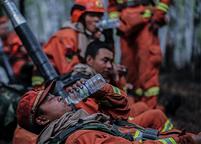| БОвГЮЛжУЃК ЪзвГ Ёњ raybetapp2фИшНН Ёњ ОМУаТЮХ |
- ЙњЮёдКИБзмРэЭѕсЊЩН:ШчIMFЗЂааеЎШЏжаЙњдИвтЙКТђ

3дТ25ШеЯТЮчЃЌжаЙњЙњЮёдКИБзмРэЭѕсЊЩНдкББОЉжаФЯКЃзЯЙтИѓЛсМћгЂЙњЪзЯрЬиЪЙЁЂУГвзгыЭЖзЪЙњЮёДѓГМДїЮЌЫЙЁЃ жааТЩчЗЂ ШЮГПУљ Щу
ЁЁЁЁбыааИБааГЄЃКIMFШчЗЂеЎМЏзЪжаЗНЛсЛ§МЋПМТЧЙКТђ
ЁЁЁЁжааТЭј3дТ27ШеЕч ЙњЮёдКИБзмРэЭѕсЊЩН27ШедкЁЖЬЉЮюЪПБЈЁЗЩЯЗЂБэЬтЮЊЁЖG20 must look beyond the needs of the top 20ЁЗЕФЮФеТГЦЃЌШчЙћЙњМЪЛѕБвЛљН№зщжЏ(IMF)ЗЂааеЎШЏЃЌжаЙњдИвтЙКТђЃЌВЂЮЊРЉГфIMFзЪН№ПтзіГіСІЫљФмМАЕФЙБЯзЁЃ
ЁЁЁЁОнжаЙњжЄШЏЭјБрдиДЫЦЊЮФеТГЦЃЌЭѕсЊЩНБэЪОЃЌШчЙћIMFЛљгкХфЖюЕФЙБЯзЮоЗЈТњзуЦШЧаашЧѓЃЌПЩвдЗЂааеЎШЏЃЌжаЙњНЋЪЧетаЉеЎШЏЕФТђМвжЎвЛЁЃДЫЭтЃЌЫћЛЙШЯЮЊЃЌIMFгІАДееШЫОљЙњФкЩњВњзмжЕ(GDP)ИпЕЭРДвЊЧѓИїЙњЖдIMFЕФЙБЯзДѓаЁЃЌЖјВЛгІвРееЭтЛуДЂБИЙцФЃЁЃЭѕсЊЩНБэЪОЃЌетУДзіВЛЯжЪЕЃЌвВВЛЙЋЦНЁЃ
ЁЁЁЁЭѕсЊЩНЛЙаДЕРЃЌжаЙњЛсЩѓЪгЫљЮНЕФаТНшПюаЖЈЃЌЫЋБпНшПюаЖЈгІгЩЯрЙиЙњМвКЭIMFНјааЬжТлЁЃЮЊгІЖдЮЃЛњЃЌМДНЋейПЊЕФТзЖиЗхЛсБиаыДЋЕнГіЙњМЪЩчЛсОіаФЙВЖЩФбЙиЕФЧПСвбЖКХЁЃ
ЁЁЁЁЙњЮёдКИБзмРэЭѕсЊЩНдкЁЖЬЉЮюЪПБЈЁЗЗЂБэЕФЮФеТШЋЮФЃК
ЁЁЁЁG20 must look beyond the needs of the top 20
ЁЁЁЁWang Qishan(Vice-Premier of the People's Republic of China)
ЁЁЁЁChina believes the developing world should have a stronger say in how the international financial system is runWang Qishan
ЁЁЁЁThe global financial crisis that started last year has taken its toll on the world economy on an unprecedented scale. To cope with the crisis, a strong signal must be sent from the upcoming London summit that the international community is determined to act together to get through the time of hardship.
ЁЁЁЁAfter the financial crisis broke out, China was quick to put in place a decisive plan to boost domestic demand, advance economic restructuring and improve people's wellbeing. These measures have started to produce results. At present, the Chinese economy still faces severe challenges.
ЁЁЁЁWe have to meet the demanding goal of maintaining economic growth by boosting domestic demand, ensuring employment and readjusting the economic structure. We also have to cope with shrinking external demand caused by the global economic downturn and trade and investment protectionism. China will continue to take forceful measures to maintain steady and fast economic growth and contribute its share to an early recovery of the world economy.
ЁЁЁЁSince the G20 summit in Washington last year, China, as a responsible member of the international community, has provided a lot of assistance and support through a variety of means to a number of countries and regions. We signed bilateral currency swap agreements worth 580billion yuan (about £58.5billion) with various countries and regions.
ЁЁЁЁWe played a part in the creation of significant Asian and global economic and trade initiatives, such as the Chian Mai initiative and the International Finance Corporation's global trade finance programme. We initiated an interagency co-operation and liaison mechanism for affairs related to the Inter-American Development Bank. The Export-Import Banks of China and the United States signed a trade finance agreement worth $20billion in December 2008. The Chinese Government sent Chinese companies on procurement missions to Europe and made purchases worth $13.6billion. We will continue to provide assistance to other developing countries particularly in Africa and Asia, within the framework of ЁАSouth-SouthЁБ co-operation.
ЁЁЁЁTo overcome the current difficulties, the international community should enhance co-ordination on macroeconomic policies. Efforts should be made to expand trade and investment co-operation to bolster economic growth, step up co-operation among small and medium-size businesses to ensure employment stability, and strengthen co-operation in energy conservation and emissions' reduction, environmental protection and development of new energy technologies to nurture growth points for the world economy.
ЁЁЁЁThe international community should recognise that the trend towards economic globalisation is irreversible and should take credible steps to reject all forms of trade and investment protectionism.
ЁЁЁЁIt should also press ahead with the reform of the international financial system, with the focus on readjusting the governance structure of international financial institutions and increasing the representation and voice of developing countries. The summit should set a clear goal, timetable and road-map for such reform. Prudent regulation of all financial markets and institutions involved should be tightened and regulatory co-ordination and co-operation at both the regional and international levels should be increased to prevent a crisis of this kind from happening again.
ЁЁЁЁOn increasing financial resources for the International Monetary Fund (IMF), an issue that has drawn widespread attention, we are of the following views: China supports increasing IMF resources on the basis of ensuring safety and reasonable returns. China is ready to play an active part in exploring ways to raise resources and will contribute to this effort within its ability. We hold that the IMF should mobilise resources through the quota-based system as well as voluntary contributions, striking a balance between the rights and obligations of the contributing countries.
ЁЁЁЁThe scale of increase should be determined in the light of the vast difference among countries in terms of stage of development, per capita GDP, the nature, composition and build-up of foreign exchange reserves and the level of dependency of a country's economic security on foreign exchange reserves. It is neither realistic nor fair to set the scale of contribution simply by the size of foreign exchange reserves.
ЁЁЁЁOn the ways to increase IMF resources, top priority should be given to a quota increase. If this cannot be done in the short term, contributions should be determined by the current quotas. If quota-based contributions fall short of immediate needs, the IMF can issue bonds, and China will be a buyer of the bonds. China will carefully study the ЁАnew arrangements to borrowЁБ proposed by the United States. Bilateral borrowing arrangements should be discussed separately between the countries concerned and the IMF, as multilateral conferences are not the right place to discuss or decide upon such bilateral issues. In short, the increase of resources should be achieved within the IMF framework and in flexible and different ways.
ЁЁЁЁOn the use of the resources, the IMF must enhance capacity-building, reform governance structure and ensure that the resources play a significant role in easing the international financial crisis and countering the global economic downturn. The use of resources should be subject to scientific assessment, proper planning and rigorous oversight to ensure that it is fair, just, transparent and effective. We hope that the resources are used mainly to help developing countries seriously affected by the crisis.
ЁЁЁЁWe firmly believe that as long as the international community works together, we will be able to prevail over this once-in-a-century financial crisis and embrace a better future.
-
----- ОМУаТЮХОЋбЁ -----
- ЁЄШЫУЧЮЊКЮШШждБЃНЁЃПТєБЃНЁЦЗЕФЧзШШ вНЩњЬЌЖШБљРф
- ЁЄНсЛщТЪНЕРыЛщТЪЩ§ ЪЧЖРСЂвтЪЖсШЦ№ЛЙЪЧЗПМлЬЋЙѓЃП
- ЁЄаТАцИіШЫеїаХБЈИцНЋЩЯЯп ЁАЩЯЮчРыЛщЯТЮчТђЗПЁБГЩЙ§ШЅ
- ЁЄЭјКьФъаНАйЭђЃПЪаГЁЕїВщЃКНі20%ЕФЭЗВПЭјКьдкзЌЧЎ
- ЁЄЦЊеТЬјЭбЁЂгяОфФбЖЎ ЩйЖљГіАцЮяжЪСПВЮВюВЛЦы
- ЁЄЛсВЛЛсЪЧЯТвЛИіЖЋББЃП УцЖдЁАГЊЫЅЁБЩНЖЋССГіетЗнАёЕЅ
- ЁЄЛљвђБрМЪГЦЗгаЭћНёЯФЩЯЪа КЭзЊЛљвђЪГЦЗЪЧвЛЛиЪТТ№ЃП
- ЁЄAIЫуЗЈФмЁАЭЕЬ§ЁБЃКЭЛЦЦТзРэЕФЁАЛвЯЌХЃЁБВЂВЛдЖ

- ЁЄВЛЩсТУАФДѓамУЈЛиЙњЃЁАФДѓРћбЧНЋзтЦкбгГЄ5Фъ
- ЁЄРњЪБ3ФъПчдН33Йњ КЩРМФазгЭъГЩЕчЖЏГЕЛЗЧђжЎТУ
- ЁЄЗ№ТоРяДяжнЙњМвВЖЛёОођў ГЄЖШГЌ5УзЬхФкга73ПХЕА
- ЁЄИЃдАЎЦНАВВњЯТЖўЬЅ РЯЙЋНКъНмЯВЩЙвЛМвЫФПк(ЭМ)
- ЁЄМгФУДѓвЛВёШЎвђЛсЛЛзпКь ЛзївбЪлГігт231Зљ
- ЁЄМггЭЧЙЮДЪеЫОЛњМнГЕЖјШЅ МггЭеОЩЯбнОЊЛъЫВМф
- ЁЄЦЏбѓЙ§КЃЕФЁАбѓУРКяЭѕЁБЃКАбОЉОчГЊИјЪРНчЬ§
- ЁЄНКЖЋСвЪПСъдАШыПкРЌЛјБщЕиЁЂЭЃГЕТвЪеЗбЃПЙйЗНЛигІ
- ЁЄНсЛщТЪНЕРыЛщТЪЩ§ ЪЧЖРСЂвтЪЖсШЦ№ЛЙЪЧЗПМлЬЋЙѓЃП
- ЁЄЭјКьФъаНАйЭђЃПЪаГЁЕїВщЃКНі20%ЕФЭЗВПЭјКьдкзЌЧЎ
- ШеЯЕЦћГЕЧАЦпИідТдкЛЊЯњСПНќ200ЭђСО Фц...
- ЁОЭМПЏЁПУњМЧРњЪЗ ФЊЭќРЯБј
- ЁА9.3ЁБДѓдФБјШЋСїГЬЦиЙт ЁАНкФПЕЅЁБЩЯ...
- ЙњМЪгЭМлазУЭЗДЕЏ ЙњФкЦћВёгЭМлИёСљСЌЕј
- 30ЫъФазгТњСГжхЮЦШч80ЫъРЯЭЗ вјааШЁЧЎ...
- АйЫъПЙШеРЯБјНЏФм
- КгФЯ500ФЖзЏМкЪеЛёдкМДБЛЧПВљ ШЮадШЧУёдЙ
- ЁАзюБЏЩЫзїЮФЁБЗЂВМепвбЛиМв ГЦжЛЪЧХфКЯЕї...
- жаЙњГЕЦѓБШбЧЕЯДПЕчЖЏДѓАЭССЯрАЭЮїЪЅБЃТоГЕеЙ
- ЁАЯжГЁжИШЯЁББфЁАгЮНжЪОжкЁБ ЯгЗИШЈРћвЊВЛ...
- ЧАЙњМЪАТЮЏЛсжїЯЏШјТэРМЦцЪХЪР
- ЭМЃКИпОЋМтОЏгУВњЦЗКЭММЪѕССЯрОЉГЧ
- ЭМЃКАТЮЏЛсЩЯЕФШјТэРМЦц
- гёЪїЕие№джЧјвЛвЙЗчбЉ ПЙе№ОШджБЖМгМшФб(...
- ЭМЃКИпОЋМтОЏгУВњЦЗКЭММЪѕССЯрОЉГЧ(2)
- ЭМЃКИпОЋМтОЏгУВњЦЗКЭММЪѕССЯрОЉГЧ(3)
- ЭМЃКИпОЋМтОЏгУВњЦЗКЭММЪѕССЯрОЉГЧ(4)
- ЭМЃКИпОЋМтОЏгУВњЦЗКЭММЪѕССЯрОЉГЧ(5)
- ЭМЃКИпОЋМтОЏгУВњЦЗКЭММЪѕССЯрОЉГЧ(6)
- ЭМЃКИпОЋМтОЏгУВњЦЗКЭММЪѕССЯрОЉГЧ(7)
Copyright ©1999-2024 chinanews.com. All Rights Reserved












